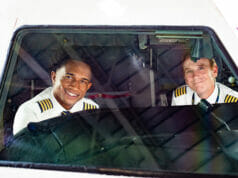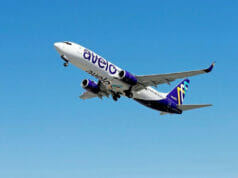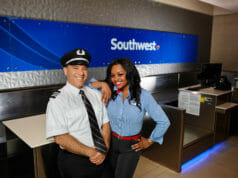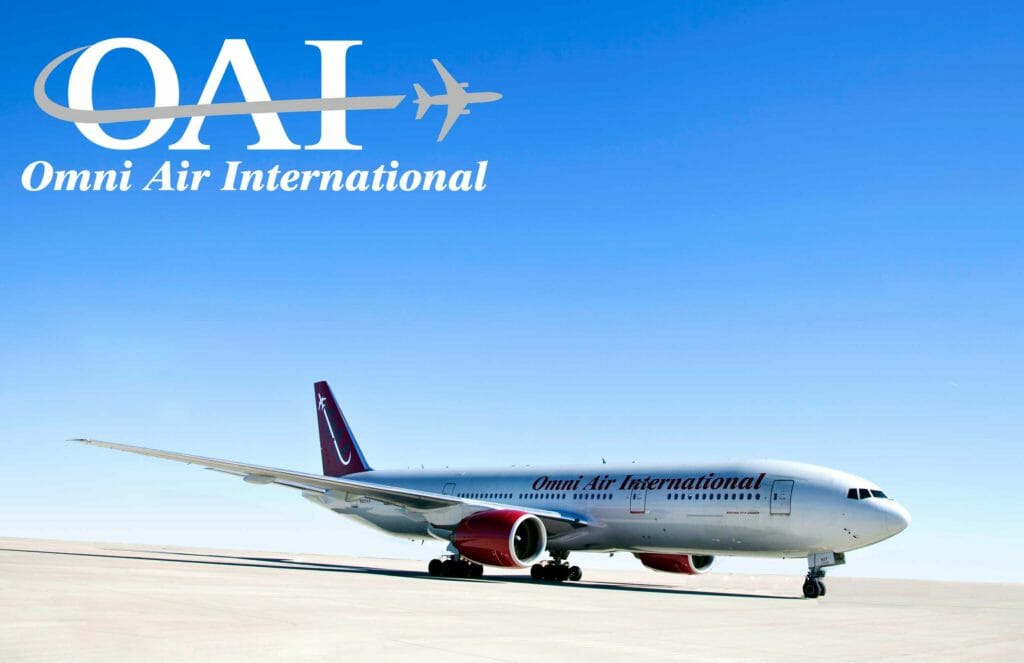
Omni Air International (OAI) is a FAA Part 121 operator that specializes in charter passenger transportation and operates a fleet of Boeing 767-200s, 767-300s, and 777-200s. Omni participates in the global market and has the capability to provide transportation to virtually any location around the world. Since 1993, OAI has undergone consistent growth while adapting to change. Throughout the company’s history, it has shown resiliency remaining successful during major operational changes such as converting from a cargo carrier to an exclusively passenger charter airline. Omni’s leadership has always encouraged a “can-do” attitude whether it was associated with the challenges involved in transitioning from DC-10s to an all-Boeing fleet, or taking on tasks to meet customer’s needs no matter how difficult.
For the past two decades we have taken pride in providing the best possible quality service that is tailored precisely to our client’s needs. We have an excellent reputation with various corporations, vacation groups, and government agencies because of our dedication and versatility. Omni’s success stems down from our founders who still play an integral role in our company. Regardless wherever our client needs to go in the world, we provide top quality service. With over 130 countries traveled to already, the possibilities are endless.
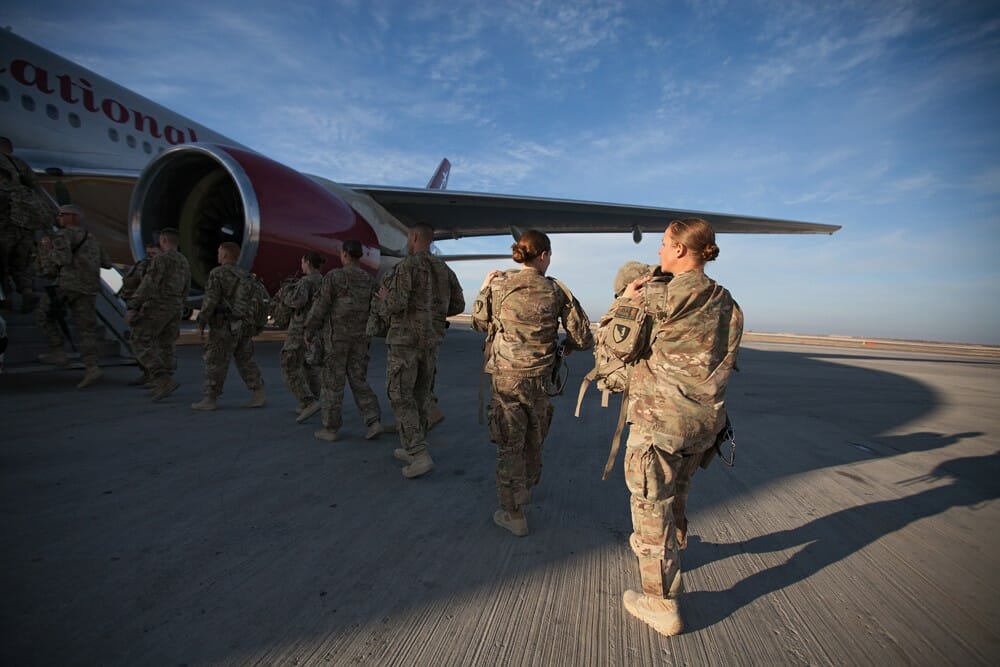 Although headquartered in Tulsa, Oklahoma, Omni does not fly exclusively out of a specific domicile. Instead, our aircraft are located strategically around the world. Because of this, our pilots are not constricted to living near major hubs. In fact, they can easily get to work from over 120 gateway cities. This provides our pilots the ability to live wherever they choose. Pilots fly positive space to where they will start their trip allowing them to cut out the hassle and uncertainty of jump seating to work. Flying wide-bodied aircraft is another great experience for any pilot seeking to advance their career towards bigger aircraft. With our short upgrade time, First Officers advance to Captain in an average of two and a half years.
Although headquartered in Tulsa, Oklahoma, Omni does not fly exclusively out of a specific domicile. Instead, our aircraft are located strategically around the world. Because of this, our pilots are not constricted to living near major hubs. In fact, they can easily get to work from over 120 gateway cities. This provides our pilots the ability to live wherever they choose. Pilots fly positive space to where they will start their trip allowing them to cut out the hassle and uncertainty of jump seating to work. Flying wide-bodied aircraft is another great experience for any pilot seeking to advance their career towards bigger aircraft. With our short upgrade time, First Officers advance to Captain in an average of two and a half years.
Omni does not follow the traditional hub and spoke system that other airlines live by. Our routes are often unfamiliar and challenging, but also include destinations that are non-standard for other carriers. Most trips are long haul international flights. Because of this, our pilots are able to see the world in an exciting way while having a great job. Pilots might go to bed one night planning on going to Ireland, but wake up to find they are flying to Australia instead. In this regard, our pilots are required to be flexible in dealing with trips that are subject to change. This type of flying is geared towards spontaneous personalities who do not mind changing plans and enjoy challenging themselves.
Omni chooses to operate an all-Boeing fleet of 777s and 767s because of their fuel-efficient long-range capabilities, which are vital to our business plan. We are able to reach any part of the globe, giving us the ability to offer our services to clients anywhere. Our commitment to raise safety standards and increase our capabilities has driven us to attain 180-minute ETOPS, Polar Ops, Cat III, and IATA Operation Safety Audit registration. Aside from safety and practicality, comfort and amenities are high priorities for Omni. We are currently upgrading our fleet to a modern interior. New business and tourist class seating will provide exceptional passenger comfort while personal in-seat entertainment systems will entertain passengers for the duration of the flight. Additionally, LED lighting will increase the comfort and mood of the passenger cabin.
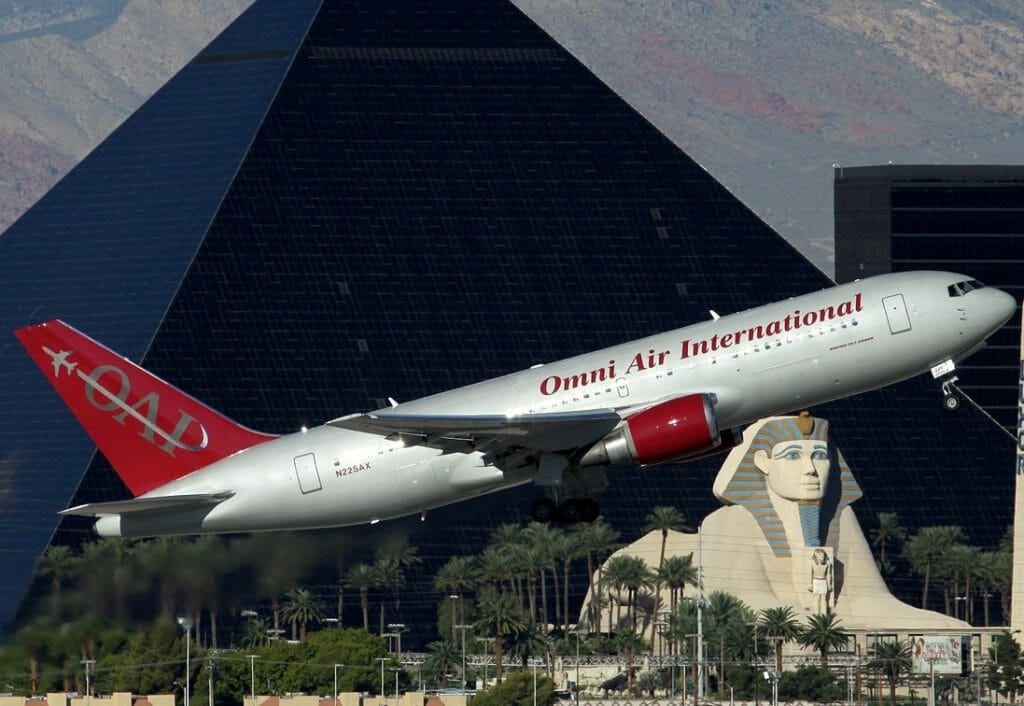
Omni is seeking to hire pilots who are best suited to our style of operation and have the experience and abilities to be successful. If you are flexible, driven, and willing to be challenged, review the minimum qualifications for First Officers below and send your resume to employment@oai.aero.
Minimum Qualification
- Commercial, Multi-Engine and Instrument ratings
- 2,000 hours total time
- 1,000 hours as PIC (Turbine Time a plus)
- ATP or an ATP-CTP graduation certificate
When a pilot has been signed off of IOE… they are well qualified to accomplish some of the most challenging international operations in the industry.
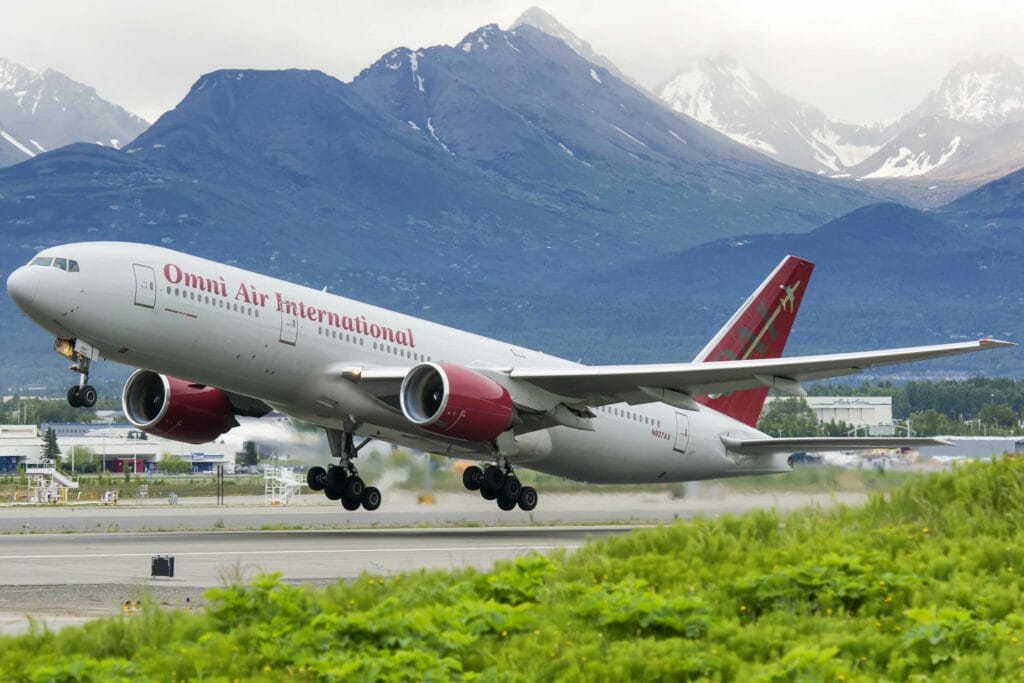
Preferred candidates will also have some international experience, glass cockpit experience, and a Type Rating.
Pilots who choose to join the Omni team and successfully complete our rigorous training put themselves in a marketability category like no other. When a pilot has been signed off of IOE from Omni Check Airmen they are not only PIC type rated in a Boeing 767 or Boeing 777, they are also well qualified to accomplish some of the most challenging international operations in the industry. While most pilots spend a career operating between a few domestic pairs, the Omni pilot who chooses to make a career of charter flying on a large scale will potentially visit more than one hundred countries all while making a comfortable salary and living wherever they may choose. If charter flying is not the long-term goal, a pilot who remains at Omni for the minimum amount of time will virtually have a VIP pass to the airline of their choosing. Our pilots are hired with ease to all legacy passenger and cargo carriers due to the qualifications and training received at Omni. Therefore, regardless of your ultimate career path of choice Omni will provide you with the tools you need to be successful.
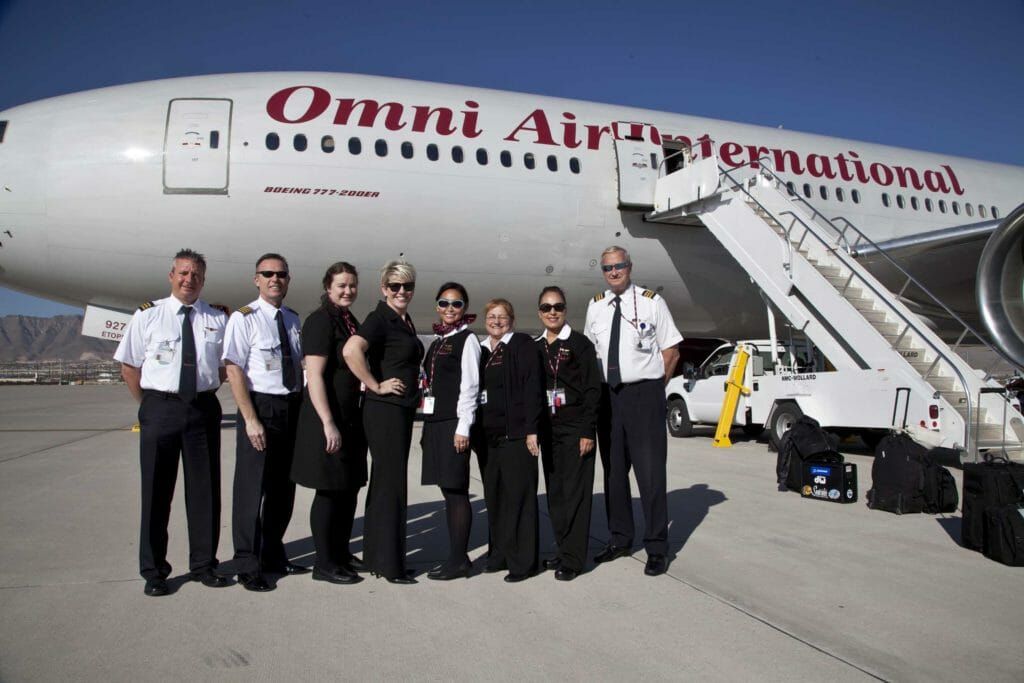
Fast Facts:
Headquarters: Tulsa, OK
Year Founded: 1993
Number of employees: 850
Number of Aircraft: 12
Number of Pilots: 232
Most Junior Captain: August, 2014
Number of Passengers: 578,000 per year
Number of Bases: 120+ Gateway bases, 4 aircraft bases
Bases:
Dallas, Baltimore, Seattle, Las Vegas
Key Benefits: Home based, Quick upgrade, International flying & Wide-body experience
Website – oai.aero
Phone – (918) 836-5393
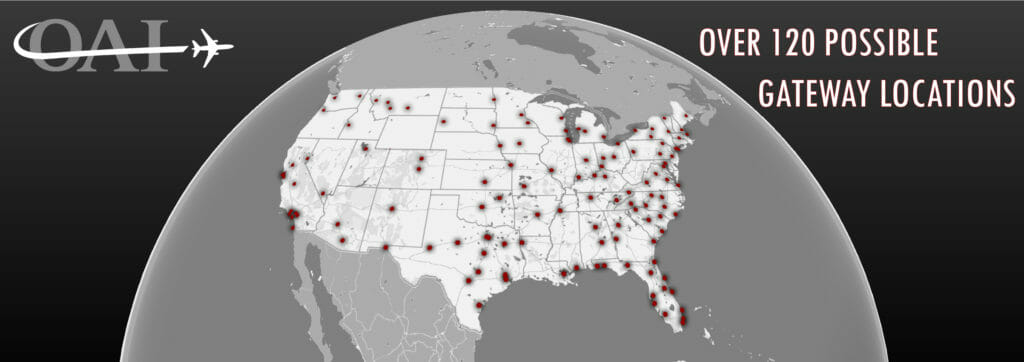
Interview with Adam Ramsey, Omni Air Chief Pilot:
Pre Interview:
Craig: How do you select applicants to be brought in for an interview?
Adam: Management receives submitted résumés and reviews them using a thorough vetting process. Then, management determines which pilots should begin the interview process. The first step in the process is a phone interview.
C: What can an applicant do to increase their chances of being called for an interview?
A: Candidates who have met the Omni team at recruiting events greatly increase the likelihood that they will be called for an interview. It is important to our team for candidates to speak with us and get to know our organization prior to applying.
C: How critical is it to attend a job fair to get an interview?
A: Job fair attendance is not required. However, as stated earlier it greatly increases the likelihood of getting a call for an interview. It is greatly advantageous for the candidate to meet us prior to applying.
C: What is the best way to prepare for an interview with your company?
A: Omni is not your typical airline. We offer unique flying opportunities that most pilots will not find elsewhere. Candidates should be knowledgeable about our company, the type of flying we do, and the type of aircraft we operate. Pilots who are able to speak knowledgably about these subjects will be more successful in their interviews.
Interview:
C: Do you recommend that applicants get to your headquarters city the day before and get a hotel room for the night?
A: Applicants that pass the phone screen and are invited for a face-to-face interview would arrive the day prior to the interview. The hotel accommodations for that night are arranged and covered by Omni.
C: Can you walk me through a typical day of interviews?
A: The schedule goes as follows:
- Meet-and-greet with the Omni team
- Written test
- Simulator evaluation
- Lunch
- Pilot contract overview
- Individual interview
- Fingerprint scan/ drug testing for successful candidates
C: What kind of questions can an applicant expect to be asked?
A: Typical questions cover:
- Work history
- Behavioral and situational based questions
- Background/personality information
- Knowledge about Omni
- Discussion of past flying experiences
C: Can you give me some examples of the TMAAT questions that you like to ask?
A: An example of a question could include, “Tell us about a time when you had to make a quick decision without input from management” or “Please describe an incident where you did not see eye-to-eye with your co-pilot” or “Tell us what teamwork looked like at your current/previous airline.”
C: If the TMAAT question being asked does not apply to that applicant can that question be skipped?
A: Yes.
C: What are some of the biggest mistakes that applicants make during the interview process?
A: The biggest mistake an applicant can make is not being truthful or intentionally misleading us. This is an automatic interview failure.
Written test:
C: Is there a written or computer test?
A: Yes, there is a written test.
C: What can you recommend applicants study for that test? At what point is this test taken?
A: Applicants need to be knowledgeable with the ATP written test guide. This test occurs during the first portion of the interview.
C: Is there a personality test?
A: We do not conduct a personality test. We ask that you just be yourself during the interview process. We want to see if you can handle the job, will do the job, and will fit in with our airline.
Simulator Evaluation:
C: Do you have a simulator ride?
A: Yes
C: What type of aircraft is used for the simulator evaluation?
A: A B777 fixed-base simulator.
C: What types of scenarios should an applicant expect in the simulator evaluation?
A: They can expect to do basic IFR flying with an approach to landing followed by a V1 cut flown to an assigned altitude.
C: What are you looking for in the simulator evaluation?
A: We are looking for solid basic flying skills, appropriate instrument scanning, and knowledge of IFR airmanship.
C: What are some of the biggest mistakes applicants make?
A: Here are the most common mistakes we see during the simulator ride:
- Poor altitude control
- Poor instrument scanning
- Inability to successfully fly the V1 cut
Post Interview:
C: Do you tell applicants they are hired in person that day?
A: Successful applicants will be offered a spot in our training pool and hired upon successful completion of training.
C: How soon can an applicant expect a class date after being hired?
A: Invitations to attend training is performance based, not based on the date the applicant entered the training pool. If an applicant does well in the interview and is prepared, they can expect to be placed in a class within a month or two.
General:
C: How many pilots does your airline expect to hire this year?
A: We expect to hire 60 new pilots this year.
C: Do you have a hiring bonus? Is there any specific criterion to qualify for the bonus?
A: We do not offer a hiring bonus.
C: Does Omni Air International have a pilot referral program?
A: We do not have a pilot referral program.
C: Can you describe the career path program that Omni Air International has with other airlines?
A: Yes, we have partnered with Ameriflight, Air Cargo Carriers, and Great Lakes Airlines to provide their pilots a guaranteed Omni interview after meeting the career path program criteria as well as Omni’s employment criteria. Pilots who meet these requirements will be invited to participate in the normal Omni pilot interview process.
Credits:
Adam Ramsey, Chief Pilot
Alex Rincker, Technical Assistant to the Senior Director of Operations
Tyler Burgess, Flight Operations Technical Assistant
Jonathan Lundberg, Flight Operations Intern
TJ Morris, Flight Operations Intern
Angela Bellville, Director of Human Resources
Deb Mitchell, HR Generalist























































































































